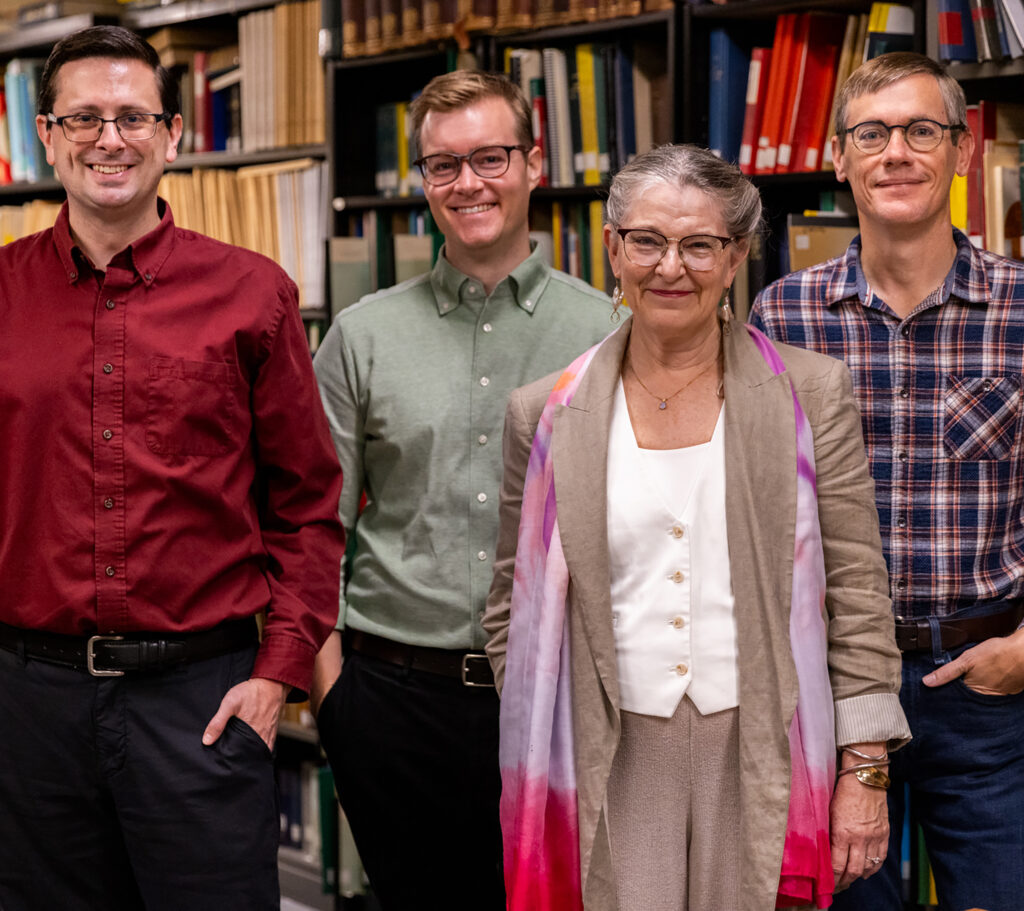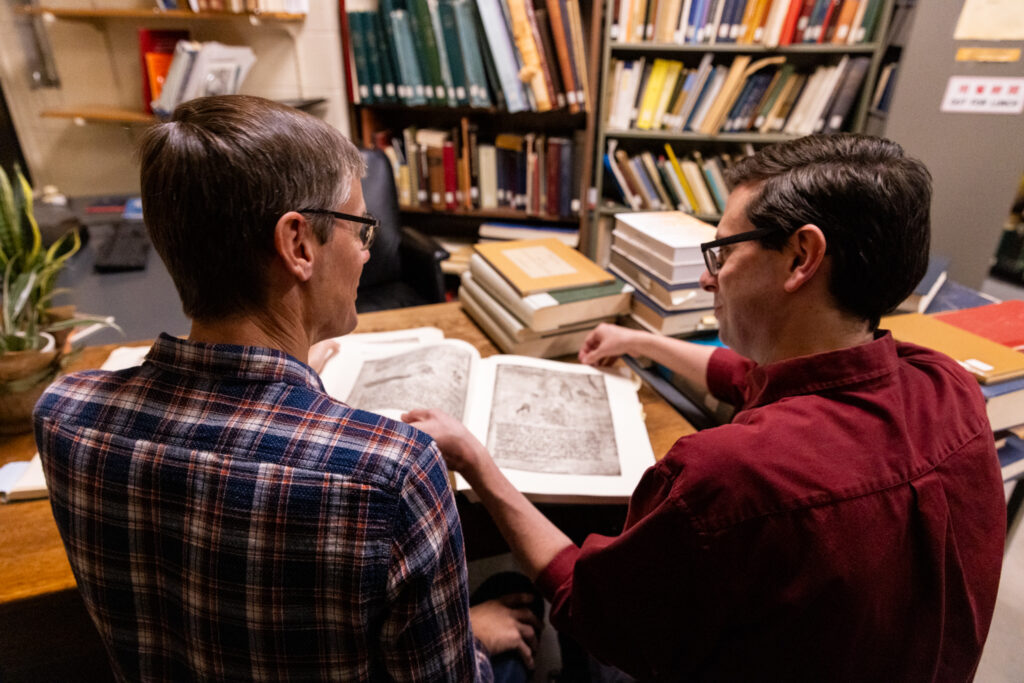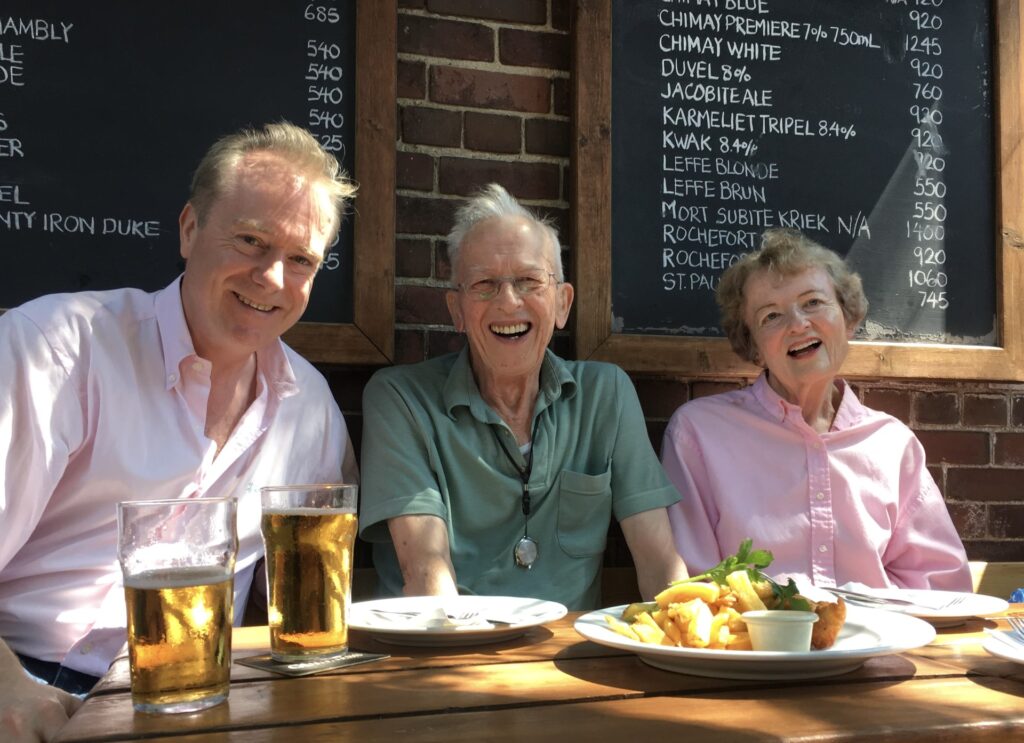Thanks to donor support, the Dictionary of Old English has a bright future ahead

The Dictionary of Old English team is Co-editor Stephen Pelle, Postdoctoral Fellow Cameron Laird, Managing Editor Catherine Monahan and Co-editor Robert Getz. Photo by Kemeisha McDonald.
Cystig. Gyfol. Rūmheort. These Old English words were used to refer to generous people, like the many passionate donors who have supported the Dictionary of Old English (DOE) for decades.
The DOE, an ambitious academic endeavour at the Faculty of Arts & Science, defines the first six centuries (600-1150 CE) of the English language based on surviving texts from the era, including words written on parchment, carved in stone, or inscribed on jewelry. Started in the late 1960s, the project has moved from microfiche to CD-ROM to its current form online.
“One thing that never ceases to amaze me is that from the very beginning, and for more than 50 years now, the DOE has received generous support from donors year after year to see the project move forward. I think it’s impressive,” says Fabienne Michelet Pickavé, associate professor at the Centre for Medieval Studies and a DOE steering committee member.

Co-editors Stephen Pelle and Robert Getz say the DOE team is more than halfway done writing entries for the 22 letters of the Old English alphabet. Photo by Kemeisha McDonald.
The DOE complements the Middle English Dictionary (which covers the period 1100-1500 CE) and the Oxford English Dictionary (OED), the three together providing a full description of English vocabulary. The editors of the OED frequently consult the DOE editors when questions arise about the early history of a word, and scholars worldwide use the DOE to inform their own research.
“The DOE is Canada’s most important and lasting scholarly contribution to the history of English,” says Roberta Frank, professor emerita at Yale University and a key driver of the DOE’s fundraising and legacy campaigns. “I was there at the very beginning of the Dictionary of Old English, and I promised its founder, Angus Cameron, in his last days that his vision for the project would come to pass.”


